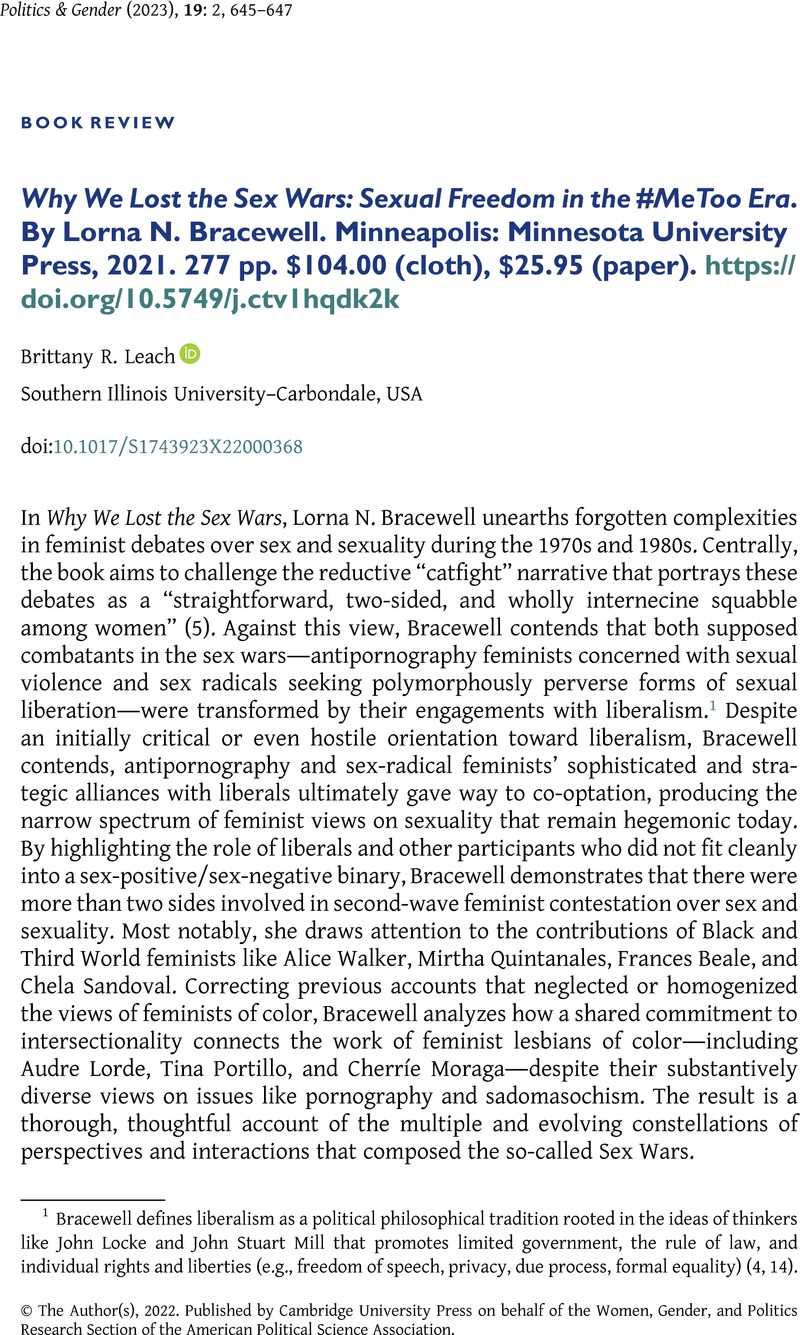No CrossRef data available.
Article contents
Why We Lost the Sex Wars: Sexual Freedom in the #MeToo Era. By Lorna N. Bracewell. Minneapolis: Minnesota University Press, 2021. 277 pp. $104.00 (cloth), $25.95 (paper). https://doi.org/10.5749/j.ctv1hqdk2k
Review products
Why We Lost the Sex Wars: Sexual Freedom in the #MeToo Era. By Lorna N. Bracewell. Minneapolis: Minnesota University Press, 2021. 277 pp. $104.00 (cloth), $25.95 (paper). https://doi.org/10.5749/j.ctv1hqdk2k
Published online by Cambridge University Press: 17 October 2022
Abstract
An abstract is not available for this content so a preview has been provided. Please use the Get access link above for information on how to access this content.

- Type
- Book Review
- Information
- Copyright
- © The Author(s), 2022. Published by Cambridge University Press on behalf of the Women, Gender, and Politics Research Section of the American Political Science Association
References
Cornell, Drucilla. 1995. The Imaginary Domain: Abortion, Pornography and Sexual Harassment. New York: Routledge.Google Scholar
Friedman, Jaclyn, and Valenti, Jessica, eds. 2008. Yes Means Yes! Visions of Female Sexual Power and a World without Rape. Berkeley, CA: Seal Press.Google Scholar


